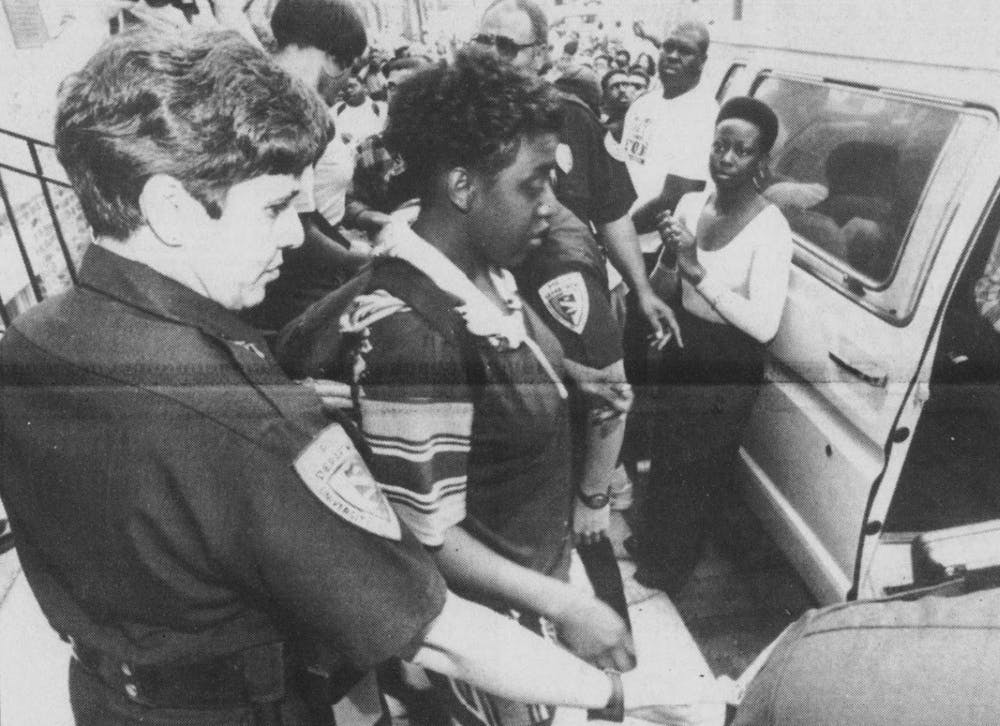Seventy years ago, the United States Supreme Court outlawed segregation in public schools. One year later, the University admitted its first African American undergraduate students. In 1963, the University enrolled its first African American athlete, and three years later, employed its first African American faculty member.
The movement for a Black Cultural Center at UNC-Chapel Hill started two decades later, in the 1980s, when Black students at UNC pursued their own free-standing building to gather.
In 1986, a University committee proposed an 8,000-square-foot permanent space to serve as the BCC. Two years later the University provided a temporary space in the Carolina Union that was one-tenth of the size of the proposed space. The temporary space served as the BCC for almost 20 years.
When Sonya Haynes Stone, an associate professor and leading advocate for a BCC at UNC, suddenly passed away, students formed a task force named in her honor. Supported by Margo Crawford, the first BCC director and a BCC advocate, the task force brought their desire for a permanent BCC to Chancellor Paul Hardin.
Hardin proposed having a “multicultural center” instead.
In 1992, protests for the construction of a free-standing BCC drew national attention, with filmmaker Spike Lee coming to support the cause. Chancellor Paul Hardin eventually endorsed a plan to build the center, agreeing to name it after Sonja Haynes Stone.
Construction stalled again in 1993, causing for more student activism. In one protest, Hardin called in campus police, who arrested 16 student protesters, making it the largest mass arrest of students at UNC-Chapel Hill since the Vietnam War anti-war protests. In the same year, the Board of Trustees selected the site for the BCC to be built, though the location was not as central as student activists wanted.
Primarily funded by private donors, the Sonja Haynes Stone Center for Black Culture and History opened in 2004, nearly 20 years after University administrators first agreed to build it.
UNC Media Relations said no one from the Sonja Haynes Stone Center was available to comment.



